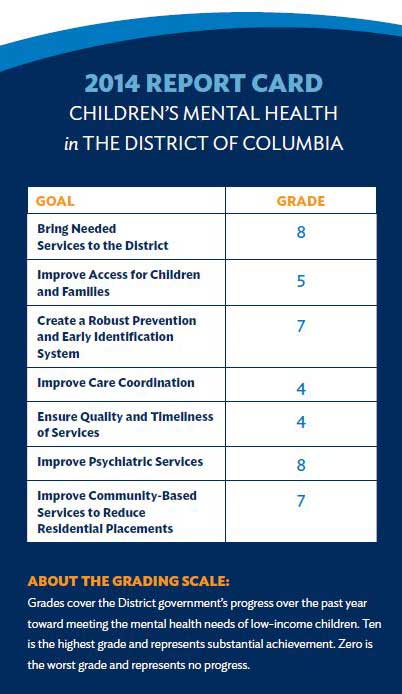2014 Children’s Mental Health Report Card

Children’s Law Center issued its 2014 Mental Health Report Card on May 6, giving the District government mixed grades for its uneven progress in meeting the mental health needs of DC’s most vulnerable children. The Report Card is a follow-up to mental health reports we have issued in previous years.
“The District has taken some good steps forward but our efforts are not reaching enough children with mental health needs,” said Judith Sandalow, Executive Director of Children’s Law Center. “We risk harming children and stalling important progress that has been made in our schools and child welfare system.”
The Report Card notes some progress. It gives the District high scores for important reforms that are poised to get many more children the screening, assessment and treatment they need. Positive steps include expanding the range of available mental health treatment options, especially for older youth, which helps to decrease unnecessary and expensive psychiatric hospitalizations.
 The District’s FY2015 budget also funds programs to help pediatricians screen children for early signs of mental health problems and refer them to appropriate services.
The District’s FY2015 budget also funds programs to help pediatricians screen children for early signs of mental health problems and refer them to appropriate services.
However, the 2014 Mental Health Report Card gives the District poor grades for failing to reach more than 5,000 low-income children that research suggests need mental health services but are not being treated.
It also ranks DC low for its inability to provide quality and timely services, citing evaluations that show long delays in children getting connected to care and delays in follow-up for children with severe mental health needs who have been hospitalized.
All children with mental health needs deserve services that allow them to learn in school, live with their families and thrive within their communities. Ensuring a full range of quality and accessible mental health interventions is especially critical for the District’s poorest children who are more likely to experience violence, homelessness and family instability than other children across the nation.
If the District does not help vulnerable DC children cope with trauma, it places them at greater risk of dropping out of school, ending up in prison or worse.
“It’s time for our city leaders to acknowledge we have a children’s mental health crisis,” Sandalow said. “This should be a higher priority for the current Mayor – and whoever succeeds him in January 2015,” Sandalow said.
Read the full report here.
Read media coverage and blog posts about the Mental Health Report Card from:
